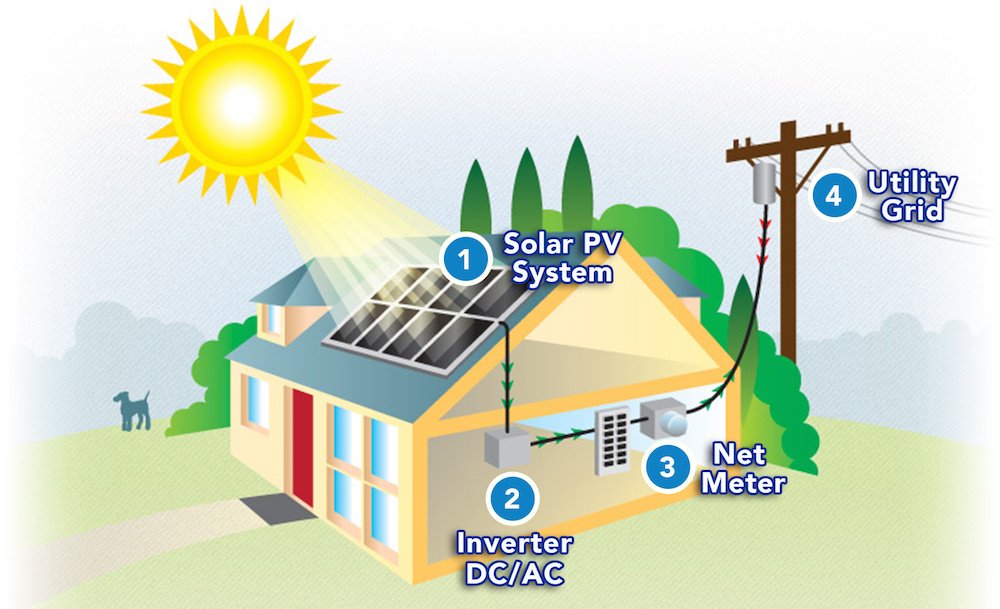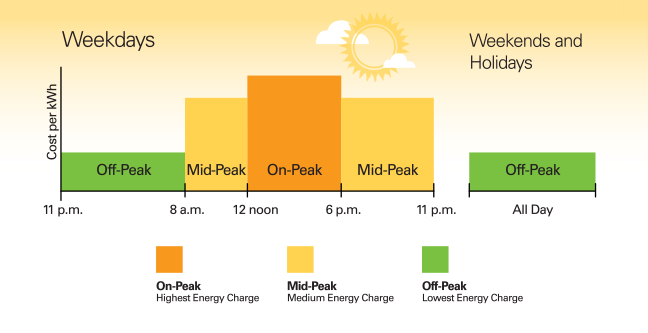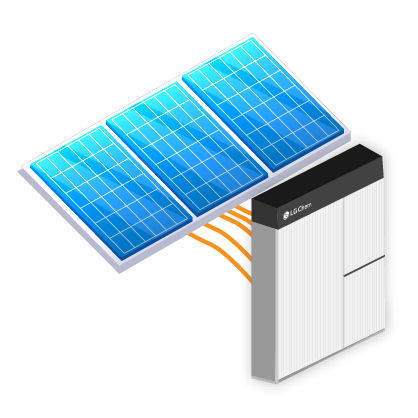See how much solar panels cost in your area

Please enter a valid zip code.
Zero Upfront Cost
Best Price Guaranteed
![]()
![]()
Solar Learning Center > Solar Battery > Page 2
Solar Battery
Along with panels and inverters, solar battery is rapidly becoming an essential component of modern solar systems.
Solar batteries have many benefits and can be of critical importance for homeowners looking to protect themselves against power outages or become energy independent.
However, pairing solar with battery storage may not be a great fit for everyone, so it’s worth exploring the pros and cons.
Get multiples quotes for your solar battery project. Start here.
The Basics of Solar Battery
At the most basic level, battery storage allows power produced by a solar system to be stored for use at a later time.
All solar systems produce power at different times than homeowners use it. Solar systems will typically overproduce during the middle of the day compared to what the homeowner needs. Without battery storage, this extra production is back-fed to the utility grid through a program called net energy metering.
By selling their excess power to the grid, homeowners accumulate credit that can be used to offset the power they draw in at night when the solar panels aren’t producing power.

When a solar system is paired to a battery, homeowners have the option to use their extra electricity to charge up their battery instead of sending it back the grid.
When net metering is available, it’s not entirely necessary to pair solar with battery storage, however there are benefits to having both.
Related reading: Can I Use Solar Panels Without Battery Storage?
The Benefits of Pairing Solar With Battery Storage
So, why pay for a solar battery when the grid is there to credit you for your excess power anyway? As it turns out, there are several key advantages to pairing your solar system with battery storage.
Protection Against Power Outages
For most homeowners, the single biggest benefit of solar batteries is the ability to have backup power during a grid outage, including Planned Safety Power Shutoffs (PSPS).
If you have a solar system without battery storage and you experience a power outage, the solar system will automatically shut off. Electrical code requires that solar systems shut down during power outages so they don’t accidentally backfeed live power to the grid if the utility company has repair workers trying to fix the lines.
By contrast, with a solar and battery system, an additional device called a backup gateway is also installed that allows the house to “island”, or isolate, itself from the grid.
The moment the outage occurs, the gateway instantly detects the event, disconnects the home from the grid, and turns on the battery. The system then becomes a closed loop, where the battery powers the home’s backup circuits and the solar panels recharge the battery.
In this respect, solar batteries can function very similarly to home generators, except the time they can run for is a bit different. Solar batteries are far better in every measurable way. Check out our other article on the top ten reasons solar batteries are better than generators.
Time of Use Savings
Many utilities around the country are moving towards time of use (TOU) rate plans for their residential customers. These rate plans more accurately reflect the changes in wholesale power prices throughout the day.
Typically, these plans have peak charges during the late afternoon and early evening, when demand spikes as everyone goes home after the workday and increases their power consumption. The off-peak times are during the middle of the day, when solar systems everywhere are producing excess power, and overnight, when demand is lowest.

This difference in rates not only affects the cost of power that homeowners draw from the grid, but also the value of the excess power that homeowners backfeed to the grid.
This means that homeowners on time of use rate plans receive less credit for their extra power generated during the day than they pay for power they draw in during the evening. As a result, homeowners can owe money to the utility company at the end of the month even if their solar system met 100% of their power demand on a net basis.
This is where the additional savings from solar batteries comes in. Rather than backfeeding excess solar power when it’s less valuable, batteries allow homeowners to store their excess power on-site and feed that power into the house at night, which reduces the amount of power they need to draw from the grid during the highest-cost time of day.
The amount of additional savings that a solar battery will provide depends on several factors, including how much electricity the homeowner uses, what time of day they use that power, and the structure of their specific rate plan.
Get in touch with solar.com Energy Advisor to see your customized solar and battery savings.
Self Consumption & Energy Independence
Pairing their solar system with a battery also allows homeowners to use far more of their own clean energy.
Without a battery, homeowners will send a significant percentage of their solar power to the grid during the day, and then draw in dirty grid power at night.
To be clear, there are environmental impacts from mining and recycling the components of battery storage. However, they far outweigh the disastrous impacts of continued fossil fuel use.
With a battery, homeowners are able to produce, store, and use their own clean power around the clock. This not only provides the satisfaction of being more self-powered by clean energy, it also enables significantly more energy independence by reducing reliance on the grid.
Tesla found that adding just one of their batteries to a solar system increased the amount of solar energy consumed by the home by over 50%!
Solar and Battery Storage Incentives
Solar batteries may be eligible for both state and federal incentives, depending on the specifics of the installation.
The primary incentive currently available for batteries is the federal , which is now at 30% with the Inflation Reduction Act (IRA) signed into law.
That means you can claim 30% of your total solar and/or battery project cost as a tax credit. One of the new changes in the IRA is that battery storage no longer needs to be connected to solar in order to qualify for the tax credit. In other words, standalone battery storage and battery added to existing solar systems qualify for the new tax credit.
The other major incentive for solar batteries is California’s Self-Generation Incentive Program, or SGIP.
This state program offers an additional rebate for homeowners installing batteries who have particular backup needs. These include being located in Tier 2 and Tier 3 fire areas, needing backup for medical equipment, meeting low-income thresholds, etc.
There are also Bring Your Own Battery programs, in which utilities provide incentives for purchasing battery and connecting it to the grid.
Our Energy Advisors would be happy to assist any California homeowners looking for more information on the state’s SGIP program.
Solar Battery Options
So, what are the options when it comes to solar batteries?
The most common batteries on the market today are the Tesla Powerwall, LG Chem, and Sonnen. Check out our individual articles for deeper dives on each of these products.
Homeowners can also purchase multiple batteries if they want to. The right number of batteries depends on a number of factors, including the size of the solar system, the amperage of circuits that need to be backed up, and the desired backup duration.
Speak with one of our Energy Advisors if you’d like to find out the right combination for you.
The Future of Solar and Battery Storage
Solar batteries have become an important aspect of modern solar systems, and their importance will only grow over the coming years.
Battery capability will continue to advance as prices continue to fall. Electric utilities are increasingly turning to batteries to stabilize their grids, with some utilities even paying homeowners for access to their home batteries to dispense power to the grid when it’s needed most.
Without question, solar batteries are here to stay.
Related Articles
Can I Use Solar Panels Without Battery Storage?
With all the buzz about energy storage, you might be wondering if a solar battery bank is essential for home solar systems. Can you even...
The Best Solar Batteries of 2025 (and How to Choose the Right...
In the last year, nearly two-thirds of solar.com customers paired their solar panels with a home battery energy storage system (aka BESS). Why? Because home...
Types of Solar Batteries in 2025: A Comprehensive Guide
Solar batteries are the clear and obvious answer to the question “How does solar work when the sun goes down?” But while most homeowners love...
SCE Approves the Tesla Backup Switch Paving Way for Lower Powerwall Pricing
Home battery storage is crucial for backup power and maximum solar savings in California — and it just got faster and more cost-effective to install....
Why the Tesla Backup Switch is a Game-Changer for Home Backup Power
Tesla has a knack for bringing emerging technologies into the mainstream. The Model Y did it for electric vehicles and the Powerwall did it for...
Should I Get an AC- or DC-Coupled Solar Battery?
With utility rates soaring and net metering policies eroding, home battery storage systems have become essential for homeowners to control their essential electricity costs. But...
Which Type of Battery Is Best for a Home Solar System?
Solar and battery systems offer homeowners an unprecedented opportunity to own and control the production, storage, and consumption of their essential electricity needs. While installing...
Which Solar Battery Lasts The Longest?
One of the most important features of a battery is how long it lasts. After all, there is a reason that Energizer has been advertising...
What Size Solar Battery Do I Need?
As grid electricity gets more expensive and unreliable, homeowners are using solar and battery systems to reduce their energy costs and keep the lights on...
How Long Can Solar Battery Power a House During an Outage?
When you install a home battery, you’re gaining a backup energy reserve in the case of an outage. Whether you have a solar panel system...
How Long Does a Solar Battery Last?
Solar batteries are becoming more popular – and beneficial – as utility providers adopt time-of-use rates, grid outages increase, and homeowners increase their appetite for...
How Many Solar Batteries Are Needed to Power a House?
With net metering policies under attack and grid outages increasing in frequency and duration, it’s becoming more and more beneficial to pair battery storage with...
Electrum’s New NEM 3.0 Savings Calculations Show Path to Maximum Bill Reduction...
In a breakthrough for California’s residential solar market, Electrum is now offering the industry’s most accurate NEM 3.0 savings calculations and, in doing so, illuminating...
What Is a Consumption-Only Battery and Why Is It Being Offered in...
If you’re looking into solar to reduce your electricity costs in California, you may come across a new term that takes a second to digest:...
What is SCE's New Home Energy Storage Pilot Incentive?
Southern California Edison — the state’s second-largest utility provider — is testing a new incentive program that aims to pre-install batteries in 2,400 new homes...
Is Solar Battery Storage Worth It in New York?
Between rising electricity prices and robust incentives, solar panels have become a no-brainer in New York. Home solar is a way to save money, reduce...
California SGIP Battery Rebate: How to Lower Your Battery Costs
Home battery storage is crucial for backup storage and maximum solar savings in California — and the Self-Generation Incentive Program (SGIP) rebate is designed to...
What Is Public Safety Power Shutoff (PSPS) And Can Solar and Battery...
What’s worse than facing a heat wave and imminent wildfire threat? How about facing a heat wave and imminent wildfire threat without power. As extreme...
What to Consider Before Going Off-the-Grid
Independence from the electrical grid may sound like an attractive idea to some homeowners – the potential for positive environmental effects, greater energy security, and...
Will “Plug-and-Play” Technology Revolutionize Home Battery Backup?
In sunny San Diego, there’s a hot startup developing some intriguing new solar battery backup technology. Imagine, instead of one large, centralized battery in your...
Your Energy-Efficient, Smart, and Integrated Home
We’re very practical at Solar.com. After all, it’s our job to make going solar as smooth as possible for our homeowners. We spend our...
Power Outages & Blackouts: How Solar + Storage Can Help
Over the last year, the US has seen an unprecedented number of power outages that left millions without power and helpless to extreme weather conditions....
Home Solar Battery vs Generators for Power Outages
As a California-based company, Solar.com is painfully aware of the devastating effect that grid blackouts and power outages can have on homeowners. Just in late...
Bring Your Own Battery Programs: Everything You Need to Know
When you see the acronym BYOB, you likely start thinking about backyard barbecues and good vibes. I know I do! But let’s dive into what...
Summer Heat Waves Cause Blackouts in California - Here's How Batteries and...
In the past week, record-breaking heat waves have hit the majority of the US. In California, the temperature is skyrocketing leaving numerous cities with...
Japanese Carmaker Nissan Debuts Home Solar and Battery System Program
Nissan, the creator of the extremely successful electric vehicle, Leaf, is entering the residential solar and home battery market. Much like Tesla, Nissan is developing an...
Mercedes-Benz Halts Home Battery Program
A few months ago, we reported that Mercedes-Benz was ready to enter the residential energy storage market. Mercedes’ parent company, Daimler, began pursuing battery backup...
Tesla Powerwall 2 - 2018 Buyers Update
Tesla’s Powerwall 2 is perhaps the most famous solar backup battery option, though it is not the highest volume sold. Tied to celebrity tech entrepreneur...
How Home Batteries Help In Storms
There are several factors that influence a solar panel owner’s decision to include a home battery in their system, but one of the primary reasons...
How Green are Home Batteries? The Environmental Impact of Lithium-Ion
Lithium-ion batteries are found in many modern electronics, including, perhaps most importantly from an environmental standpoint, electric vehicles and energy storage systems. Technological breakthroughs have...
Home Battery Backup Main Event - sonnenBatterie vs. LG
We recently wrote an article comparing Sonnen’s Eco and Teslas’s Powerwall 2, but now we’re going to see how the Eco stacks up against the...
Mercedes-Benz Has Decided to Enter The US Home Battery Market
Mercedes-Benz is the latest entrant in the rapidly expanding US residential energy storage market. The automaker is set to begin selling energy storage systems across...
Meet The New Battery in Town - The LG Chem Resu 10H
The home battery market is getting more crowded these days. Previously, we compared the Tesla Powerwall 2 with the Sonnen Eco 10. Today, we’re profiling...
Tesla Powerwall 2 vs. Sonnen Eco
On October 28th, Elon Musk dazzled audiences with the unveiling of Tesla’s Solar Roof and updated Powerwall home energy storage system. Fans are already putting...
Do I Need Solar Batteries?
There are good reasons why batteries are sold separately from residential solar energy systems. First of all, it’s easy to go solar without using batteries....
Solar Energy Storage 101
Storing energy generated from your solar panels is an effective way to make your home more sustainable. By saving energy from the daylight hours...
See how much solar panels cost in your area.

Please enter a valid zip code.

Please enter a valid zip code.
Zero Upfront Cost. Best Price Guaranteed.






